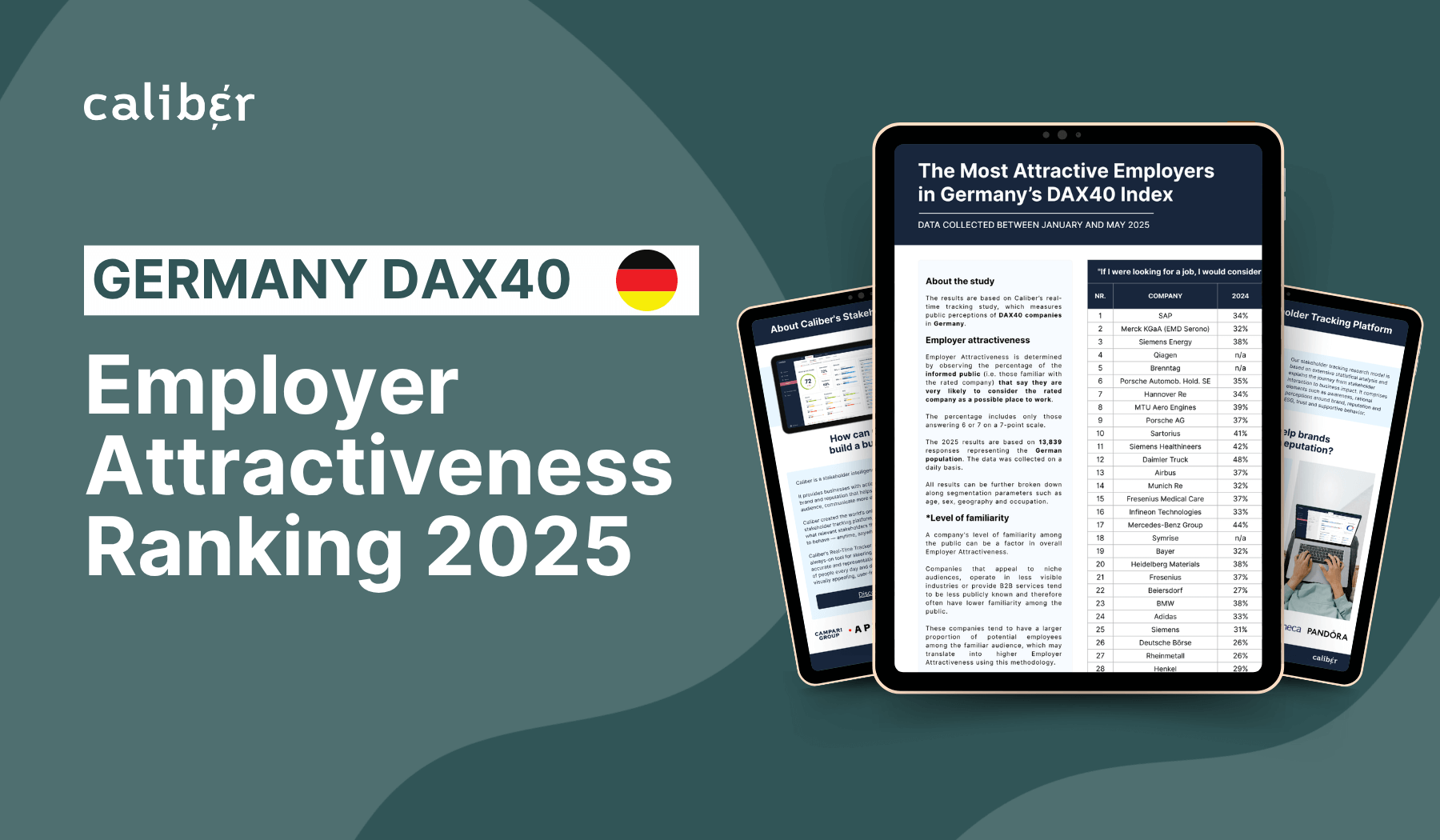

Earlier this year we wrote about the reputation of the biggest German companies. Lots of time has passed since then, and we are now curious to see how the leaders and laggards fared during Q3 in our Germany DAX 30 reputation ranking.
Indeed, the apparel giant has lost more than 4 points during the summer and is down to rank 8. The only other players that see corresponding declines in their Trust & Like Score are Bayer (-4,4 points) – likely due to the outcome of the Monsanto “weed killer” trial, the often-troubled Deutsche Lufthansa (-5,9 points), and Deutsche Post (-9,1 points) whose restructuring of the Post & Parcel division, initiated back in June, has clearly impacted consumers’ perceptions negatively.
But what’s the story with Adidas? Many blame the decline in reputation on the somewhat poor performance of Die Mannschaft during the 2018 Soccer World Cup, where the world champions were stunningly knocked out in the group stage.
This could be a good explanation, but the surprising rise of SAP to the very top of the ranking warrants its very own attention – and this might also have to do with sports.
Introducing its new machine-learning-based technology that analyzes match data and offers team coaches detailed analysis of players’ performance and areas to improve, SAP has gotten lots of positive publicity during the event in Russia, which may have contributed to the company’s top position. In fact, SAP’s Trust & Like Score has decreased in August-September, but not enough to bring it down from its victorious July increase.
Only ThyssenKrupp has climbed more than SAP in the third quarter (+4,9 points) on the news of splitting up its business and restructuring the divisions.
At least when it comes to BMW, the answer is yes. The company is back in the top 3 with small but long-awaited gains in brand and reputation. More importantly, with a score of 70,9, it is now back in the “strong tier” of international companies that enjoy a 70+ Trust & Like Score on their scorecard.
Another player that has managed to improve its position dramatically is Continental, which is now ranked as the 4th most trusted and liked company in the German DAX 30, right behind the mighty Siemens.
But with Daimler staying stuck in the middle of the DAX 30 reputational ranking with literally zero improvements since Q2 and VW Group falling 2.9 points further to earn the second position from the bottom, the automotive comeback seems to be delayed, at least for some.
Sometimes, the search for reputational excellence should focus not on the top of the fastest climbers but on those companies that managed to sustain their positive reputation levels.
Among German companies in the upper half of the list who maintained their Trust & Like Score during Q3, we find four chemical & pharmaceutical companies (Beiersdorf, Henkel, Fresenius, and Merck).
The lack of any big news (positive or negative) could be the reason, but as we have seen before the traditional negative sector impact in the global reputation economy within scrutinized industries such as chemicals and pharmaceuticals does not seem to apply in the companies’ home market, especially in Germany.
Maybe something to look further into for those with the desire to succeed in Germany.

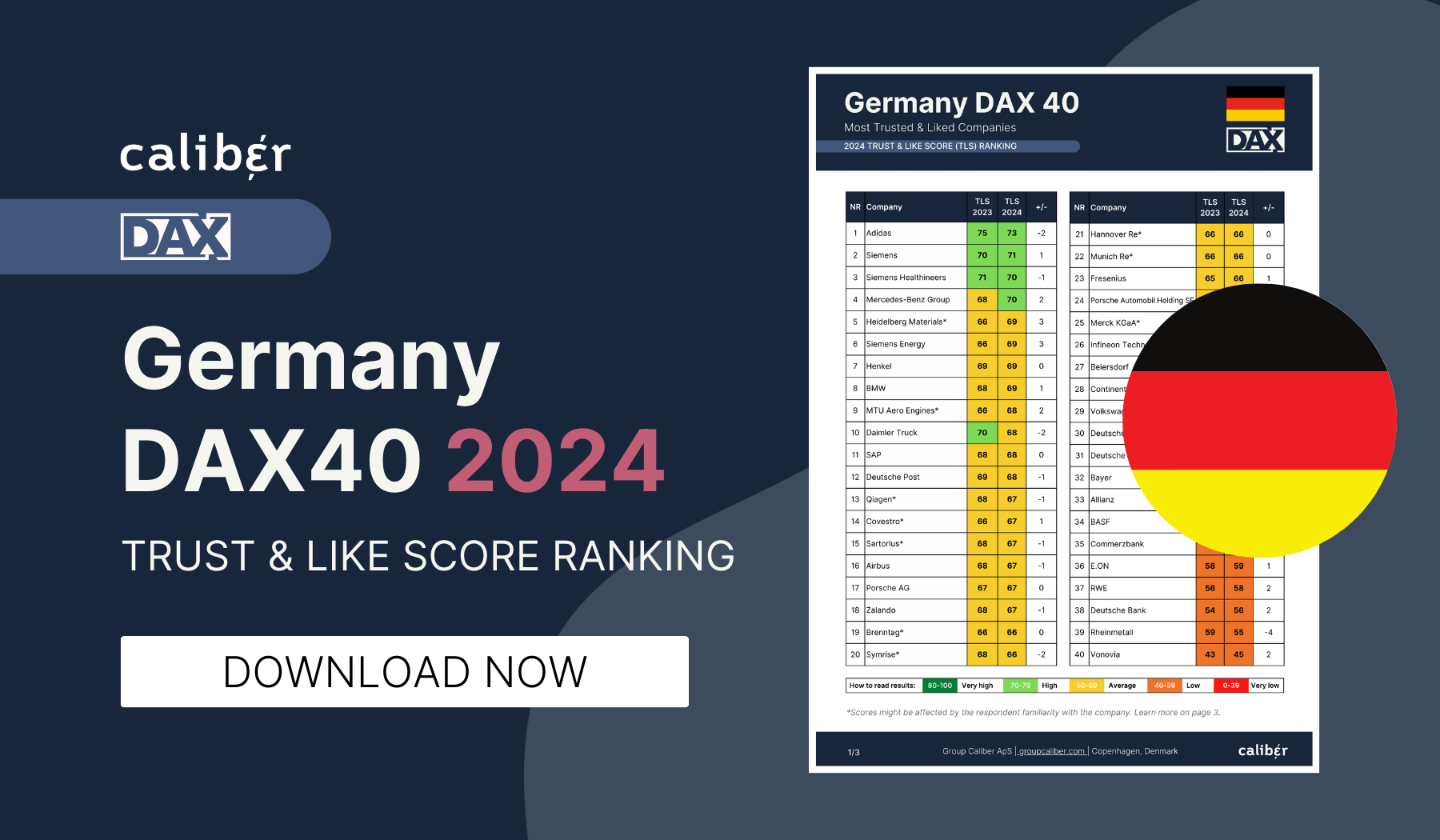
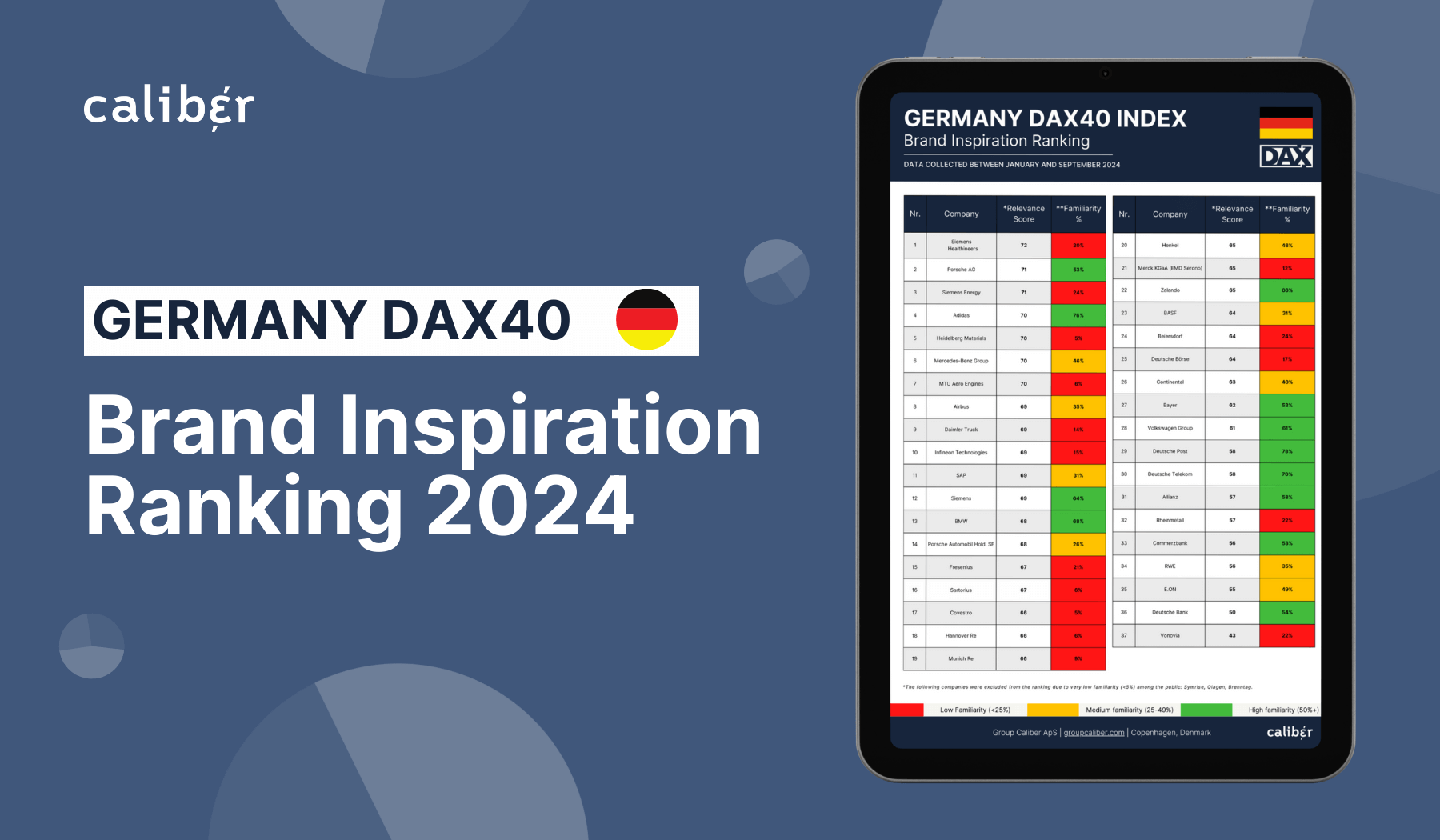
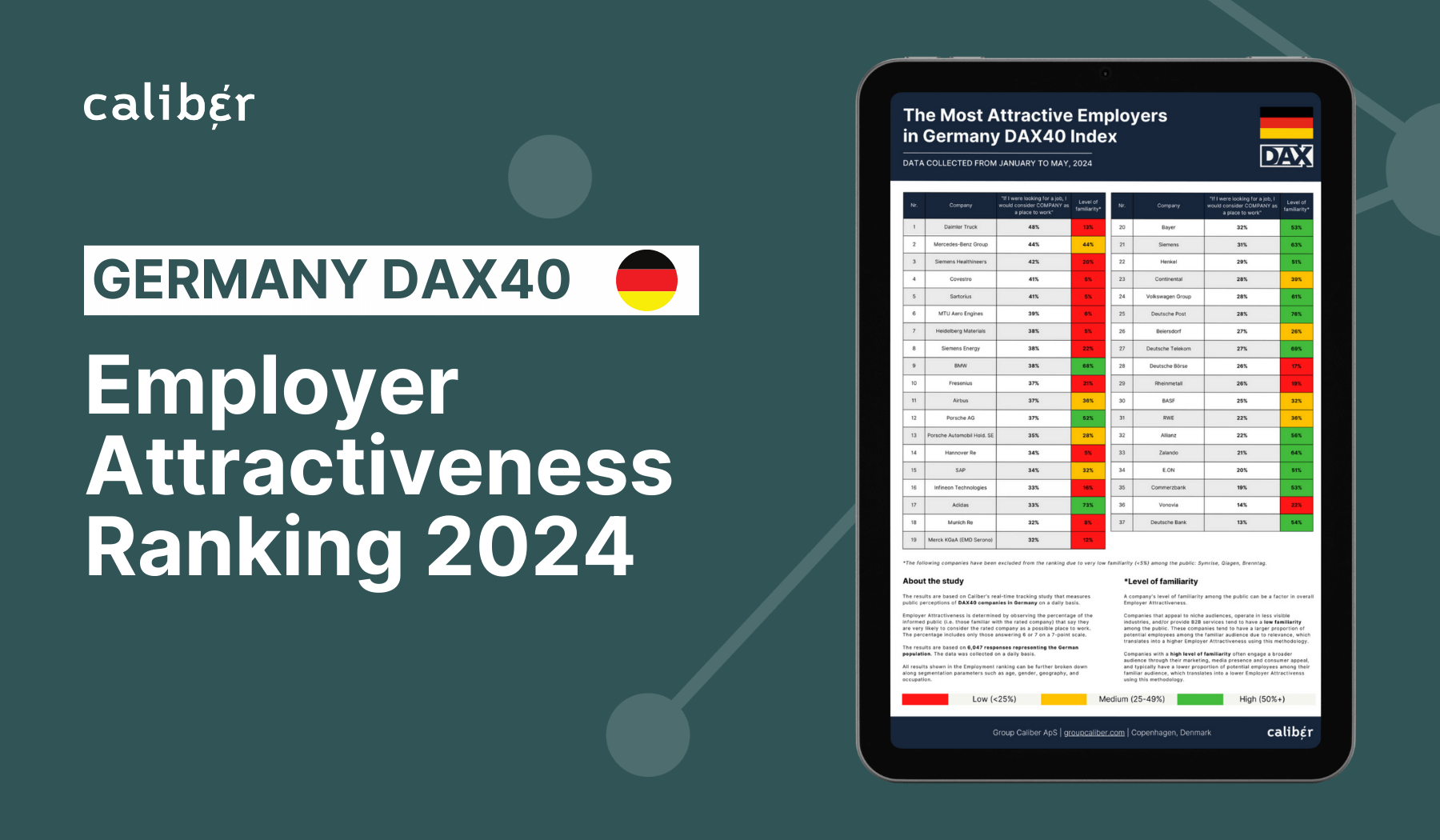
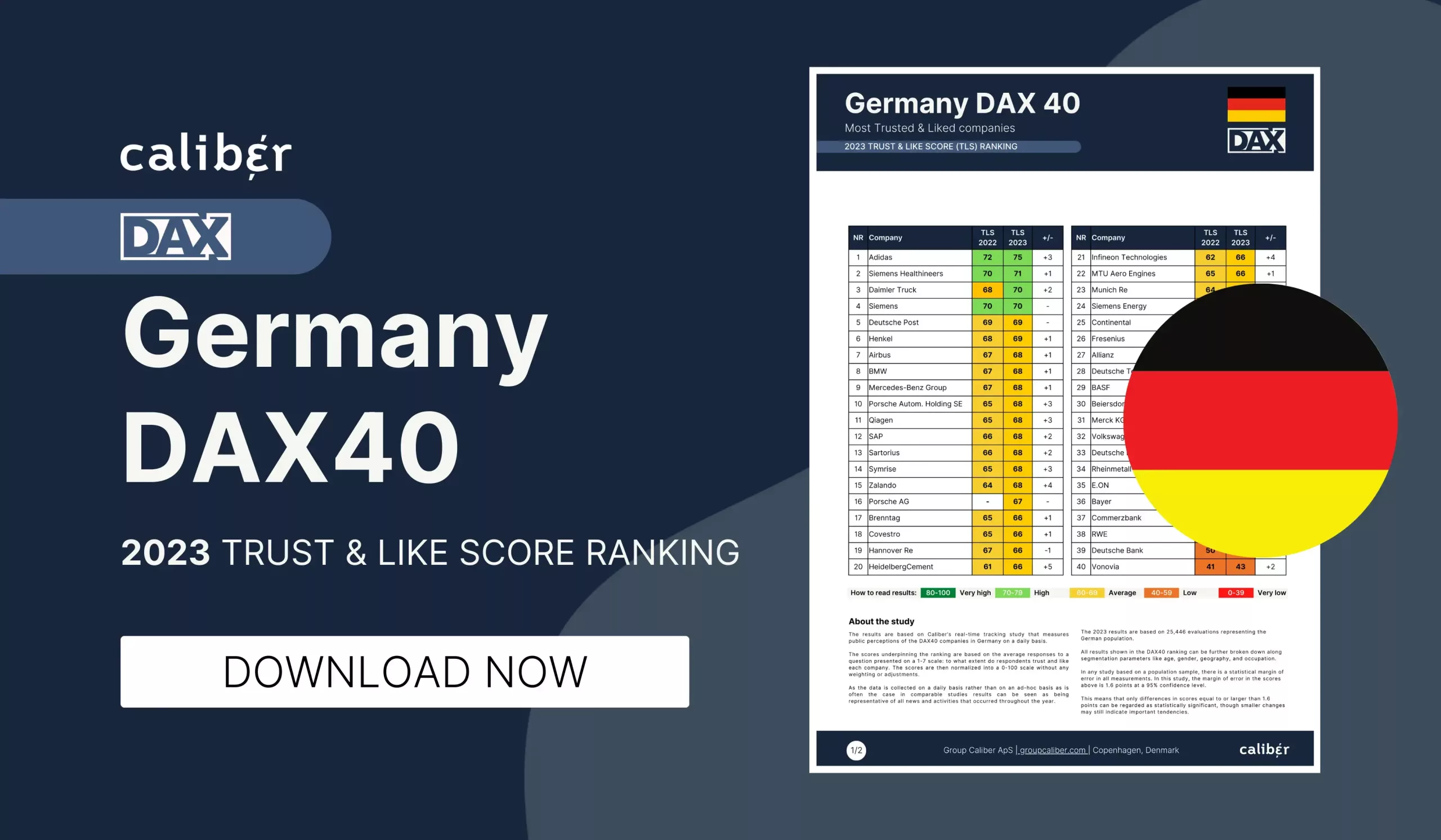

© 2024 Group Caliber | All Rights Reserved | VAT: DK39314320